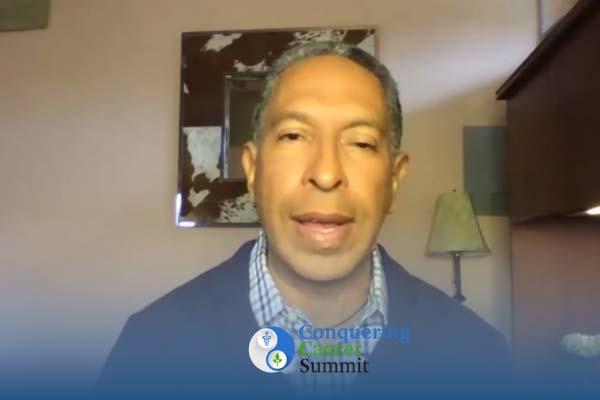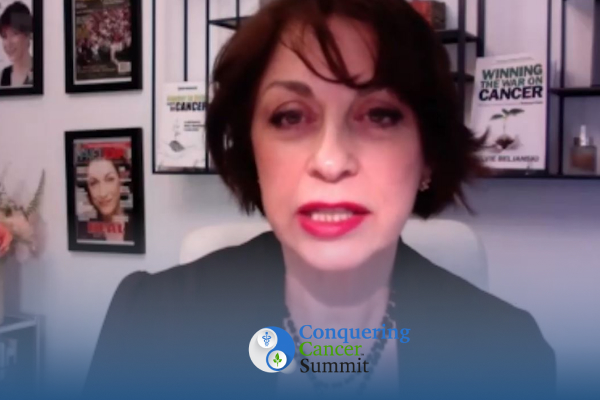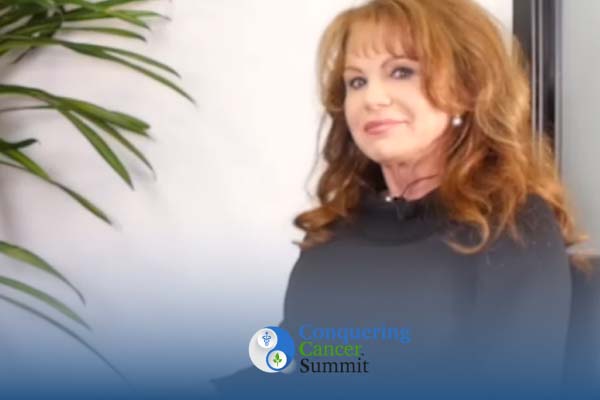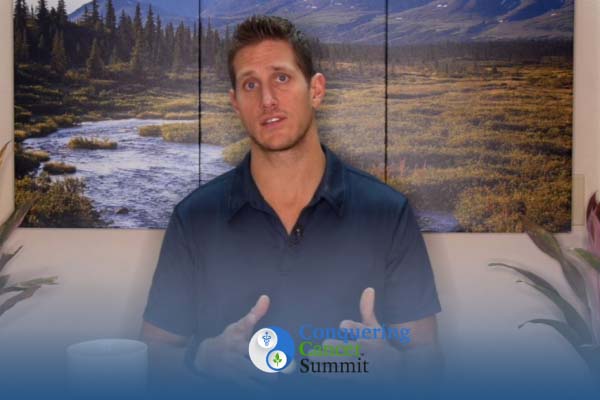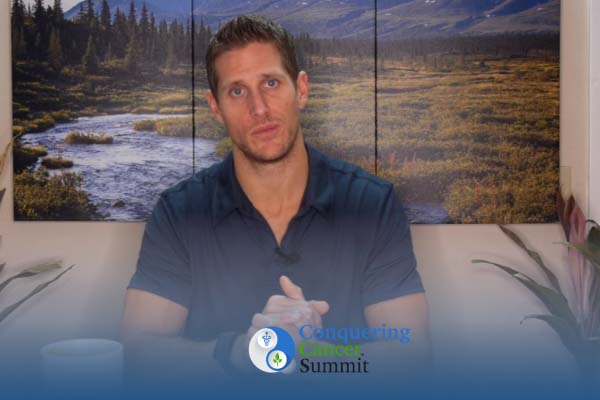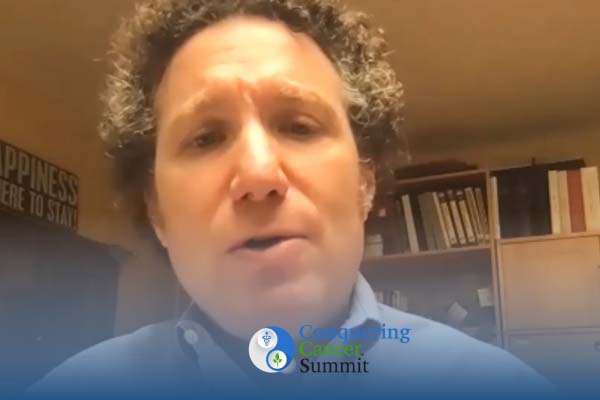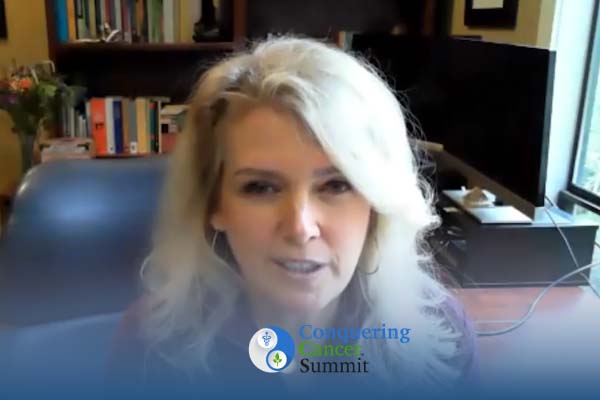Join the discussion below
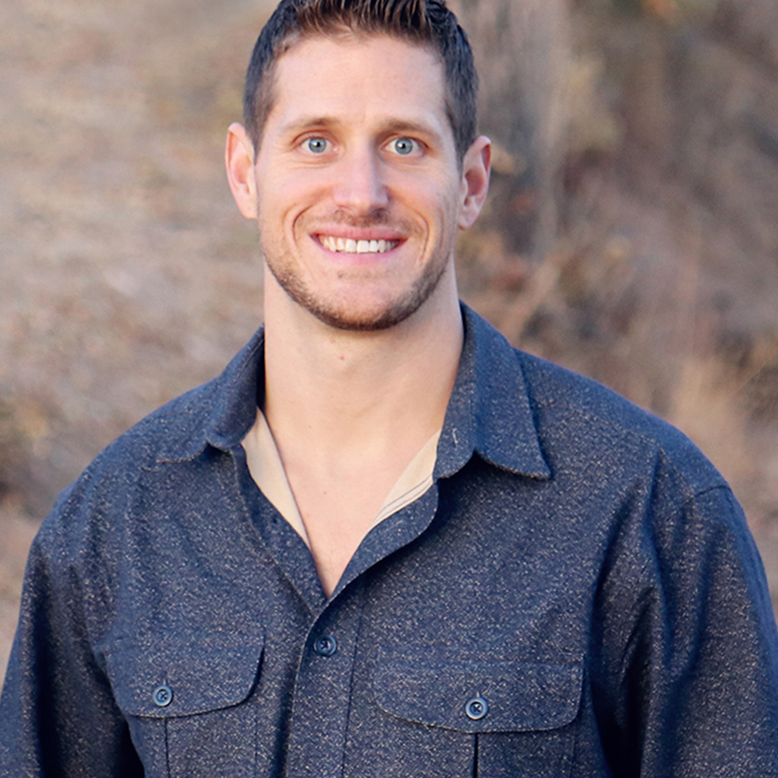
Nathan Crane is an award-winning author, inspirational speaker, plant-based athlete, event producer and 18x award-winning documentary filmmaker. Nathan is the Founder of The Panacea Community, Creator of the Global Cancer Symposium, and Director and Producer of the documentary film, Cancer; The Integrative Perspective. He is also the Director of Strategic... Read More
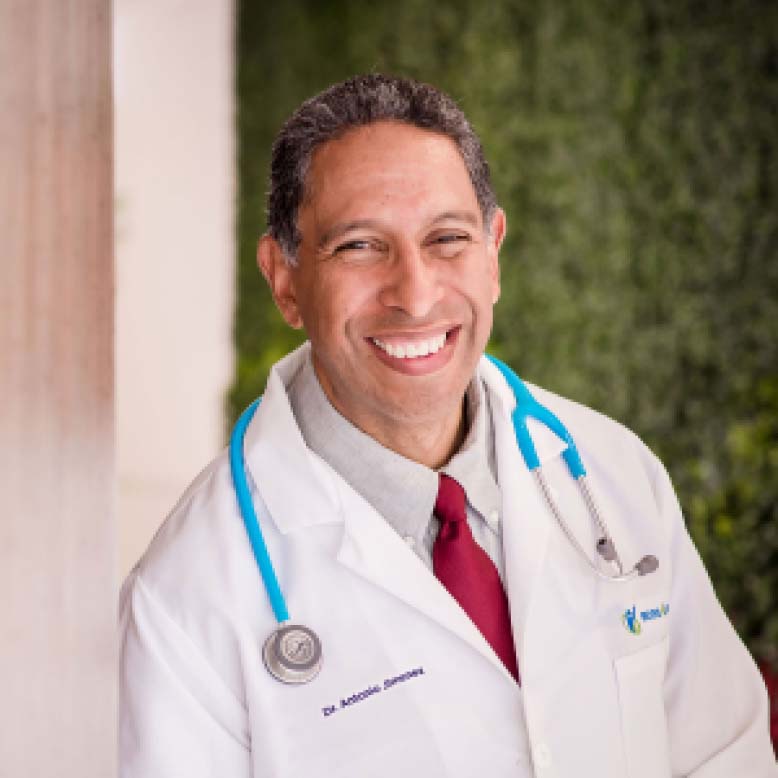
Antonio Jimenez, MD, ND is the Founder and Chief Medical Officer of world-renowned Hope4Cancer Treatment Centers, currently operating in Mexico (Tijuana, Cancun), and Thailand (Bangkok). A globally recognized leader in integrative oncology, Dr. Jimenez received his M.D. from the Autonomous University of Guadalajara Faculty of Medicine in Mexico. For over... Read More
- The low cost and free treatments anyone can do with cancer
- How to plan financially for effective and integrative cancer care
- Why integrative immunotherapy should be considered over conventional immunotherapy
- How cancer care is accessible to everyone no matter your financial
- The difference between smart cancers and stupid cancers
- Why cancer is seldom a medical emergency and what you can do to empower yourself in finding the best treatment
Related Topics
Cancer, Cancer Treatments, Conventional Medicine, Conventional Therapy, Cost Differences, Fear, Financial Burden Of Cancer, Fundraising, Hallmarks Of Cancer, Healing, Hope4cancer Treatment Centers, Immunotherapy, Integrative Immunotherapy, Integrative Medicine, Multiple Therapies, Natural Medicine, Reimbursement Possibilities, Smart CancersNathan Crane
Hello everybody, welcome to the Global Cancer Symposium 2.0. My name’s Nathan Crane. I’m the award-winning filmmaker of “Cancer; The Integrative Perspective” as well as the Director of the Health and Healing Club. You can learn more about that healthandhealingclub.com. But today I am really honored and excited to be talking with Dr. Antonio Jimenez, also lovingly known as Dr. Tony about the financial burden of cancer, assessing your options to manage a cancer diagnosis. You know, we were just talking briefly behind the scenes if you will, about one of the major concerns for anybody dealing with a chronic disease or chronic diagnosis like cancer.
Is the financial concern, one, how much is this gonna cost me? Two, am I even gonna have enough money to really follow through with the treatments needed? And three, am I gonna be able to, you know, am I gonna outlive my money, right? And so these are all valid concerns and these are also really important topics we’re gonna be covering in this interview. Not only things you can do, effective treatments you can do for yourself at home that are free or very low cost. But also what are the low cost to mid tier cost to higher cost integrative, natural or even conventional treatments, right? That you need to be prepared for. And how can you deal with those things financially? How can you overcome that burden? How can you overcome the fear?
This isn’t an interview about how can you make more money? It’s not about that, it’s about, you know, recognizing what our fears are, recognizing what our approach, our best approach can be. What is the efficacy of these treatments and what is the cost you need to be aware of? And then, so you’re more empowered to say here’s all the things I can do, and here’s my dream things that I’d love to do or here’s the things that I absolutely can’t afford or will make sure I do financially make happen for myself because my life depends on it, right? So we’re gonna get into all that. I do encourage you to take notes. I do encourage you to, you know, listen to this again and again, because you’ll learn things a second or third time that you might’ve missed the first time. But let me read Dr. Tony’s bio.
He’s truly an extraordinary leader in the field of integrative medicine and integrative cancer treatment. And then we’ll bring him on, okay? So, Dr. Antonio Jimenez is an MD, medical doctor, and an ND, a naturopathic doctor, and he’s the founder and chief medicalofficer of the world renowned, Hope4Cancer Treatment Centers, which are operating in Mexico in Tijuana, in Canun, also in Thailand. And he’s a globally recognized leader in integrative oncology, Dr. Jimenez received his MD from the Autonomous University of Guadalajara, faculty of medicine in Mexico in for over 25 years. He has dedicated his life to the study clinical research and implementation of integrative non-toxic treatments. Known for his development of the seven key principles of cancer therapy, which hopefully we’ll have enough time to get into those today as well, which he has a great book on the subject.
Dr. Jimenez is an established speaker, has been featured at events, including our own Global Cancer Symposium. He’s also in my award-winning film, “Cancer; The Integrated Perspective.” He has taught at the truth about cancer live symposium, the anticancer revolution, as well as many others. Throughout his career, he’s traveled to more than 70 nations, learning, training and researching innovative cancer care methods and technologies. His experience and expertise have seen him successfully pioneer effective, non-toxic treatments such as photodynamic therapy, which I wanna learn about. And emerging immunotherapies as well. He’s also an accomplished author.
His most recent book, I encourage you to go pick up it’s called “Hope for Cancer: Seven Principles “to Remove Fear and Empower Your Healing Journey.” Certainly a foundational book that everyone should read. Dr. Tony further propels his mission to share the vital healing knowledge of his medical discoveries with the world. And he provides his patients with a lifelong structure for healing built around science, education and empowerment. His website is hope4cancer.com, hope4cancer.com. Go take a look at it right after this interview. Dr. Tony, thank you so much for being with us.
Antonio Jimenez, M.D.,N.D.
Oh Nathan, you’re so kind, it’s my honor to be here at this Global Cancer Symposium. And yeah, I reiterate what you say, the viewers, the listeners who share this information and let’s empower ourself. When else in history, Nathan, have we been in this situation where fear of all types and lack of power is so prevalent, so, I’m so excited to be here with you.
Nathan Crane
Yeah, and I’m, I mean, I’m honored. I mean, you’re truly a pioneer in the space and you know, you have so much to contribute to this topic. And certainly with backgrounds in naturopathic medicine as well as conventional medicine, and then integrative medicine, you know, you’re the perfect leader to be speaking on this topic. So thanks for taking the time with us and, you know, let’s really dive right in. I mean, so many people, right? Who are dealing with cancer are struggling financially and have the fear that the costs will be honestly, too much of a burden for them to handle.
Yet, it’s also their life we’re talking about, right? So, please talk about the difference initially in, and we’ll get into how to deal with some of these fears and also, you know, some of the things that people can actually do and recognize that, you know, the fear is could be holding you back from actually healing and what you can do about that as well. But also, empower you things that are free and low cost, as well as effective, you know, middle to upper tier costings, as I mentioned in introduction, but kind of first question to lay the framework. What are some of the differences in cost in general, between natural medicine, conventional medicine and then integrative medicine? So that’s part one, right? Difference in costs. And then how can someone start to wrap their minds around what it’s truly gonna take financially for effective treatment?
Antonio Jimenez, M.D.,N.D.
Wow, that’s a pretty loaded question there, Nathan, let’s attack it. Number one is the Hope4Cancer treatment centers in Tijuana, we opened in the year 2000. And so it’s been a long history, a lot of experience in. 90, initially 94% of our patients were stage four. That they were told that, either there’s nothing that we can do at the point of diagnosis or they had exhausted all conventional therapies. And some of them out of pocket. And so by the time they contact us, it’s like, you know, they have no money, so they’re wondering how could they avail themselves to integrative cancer treatment?
Throughout the years, that has shifted a little bit. Now, it’s about 70, 75% of our patients are in stage four, right? So more patients are coming to us in earlier stages of cancer. And why do I say this with respect to finances? I say this because no matter what stage you’re in, remember that your life has no cost. I mean, it’s invaluable. You’re a child of the most high, you are worth it for yourself and for your loved ones. So first of all, recognize that you’re worth it. You have the opportunity to heal, you have the opportunity to improve your quality of life and to live much longer and or go into remission. And we have patients that, you know, many, many years later, including my dad died of something else.
He died of a heart disease after 20 plus years of being diagnosed with prostate cancer. So, the cost of conventional therapy, for example, there’s something now in most recent years called immunotherapy. And this is the, when you’re targeting specific receptor sites on cancer cells, these are called PD or PD-L1 receptor sites, CTLA-4. So these are like doors and windows, if you will, on the cancer cells. So these immunotherapies block these, and so now the cancer can’t progress and you know, they start to break away.
So one injection of these so-called immunotherapies can cost up to $18,000. And if you need one a month, well this adds up very quickly. And of course, chemotherapy, you know, the cost is so much. And then there’s something else called oncolytic viral therapy. There was one that was recently approved by the FDA in the US targeting melanoma. It’s called T-VEC, T as in Tom, T-V-E-C. That is an oncolytic virus, it comes from the viral family to target cancer cells. These are extremely expensive medications and products. When we talk about immunotherapy of Hope4Cancer, we’re talking about an integrative approach. We’re talking about upregulating your God-given immune system. And when is that more important than now in 2020, right Nathan?
Nathan Crane
Exactly.
Antonio Jimenez, M.D.,N.D.
Sorry?
Nathan Crane
Go ahead and go, I’ll let you finish, yeah, go ahead.
Antonio Jimenez, M.D.,N.D.
Yeah, so the cost of conventional cancer treatments are exceedingly high. We had a patient that recently contacted us that they had spent $1 million, that their insurance didn’t cover. And now they come and you know, they’re in advanced stage four, makes our work much difficult, much more difficult and they’ve exhausted all their savings, which was quite a bit.
So conventional therapy then that falls into standard of care, of course, and what we’d like to say, and I’ll quote from information that we provide. A big thing here is that we always say that the patient has to understand that they are worth it. Although the treatment may be a big financial burden, their life is worth the cost. And you have to realize and sometimes get surprised at what options that there are for fundraising or reimbursement possibilities. This happens a lot and we’ll discuss this further, but we believe that healing should not put you out of a house or, you know, out of your home. And it is our mission at Hope4Cancer to make cancer care accessible and affordable for patients at, you know, of all backgrounds. And whether it comes from your own savings, whether it comes from other possibilities, we could discuss that. But the main thing here is don’t live in fear with the diagnosis and don’t go into fear financially because those two will suppress your immune system, will make your possibilities of healing for whatever treatment you do, much less.
Nathan Crane
Yeah, thank you for that, man. That’s definitely what we need more of today, right? Is more effective cancer treatments that are also affordable and accessible for anyone or most people, right? And, I mean you outlined it really well that unfortunately conventional medicine today is extremely expensive. I mean, you’re talking tens of thousands. There’s a new therapy coming out $100,000 a pop, and you’d have to do it every month, right? And these 18,000, 20,000, 30,000 treatments that you’re doing weekly or monthly, one, they’re gonna add up tremendously over months and years.
Two, if your insurance isn’t covering much, it’s gotta come out of pocket. Three, a lot of these, unfortunately, conventional treatments have a very low effective rate. They’re notactually very efficacious, right? And so there are times where conventional treatment is very beneficial and would be a great choice for somebody dealing with cancer, right? But those really need to be assessed carefully. At least I would say that, that you really need to assess all your options before you choose a very invasive, potentially highly toxic and always very expensive conventional treatment option, right? If there are more natural or integrative approaches that are more accessible and in often cases can even be more efficacious, right?
Antonio Jimenez, M.D.,N.D.
If I could I interrupt, Nathan, for a moment? I put it very simply, there’s two types of cancers. There’s smart cancers and they’re stupid cancers. 1% of all cancers are stupid cancers. Those are like chronic myelogenous leukemia, and a few others. So these cancers, you do one treatment, you do a monotherapy and great results. Until that monotherapy maybe ceases to work, and then you do another monotherapy of the same family, a cousin of the first one you use and patients do very well. But 99% of all cancers are smart cancers. And so you need multiple therapies.
This is why, you know, 18,000 per pop, we’re only talking about one drug and that’s not going to give us an effective outcome. You need multiple drugs, and those that are watching and listening us maybe they have been on chemo, and usually it’s not one chemo. You get two, three, and maybe four, and then plus a steroid and plus, and plus, and plus, so the numbers financially add up so, so much. And the thing is to remember, to target these smart cancers which is a big topic, but to target these smart cancer, you really have to know the characteristics and the hallmarks of cancer, none of which are approached by conventional standard of care oncology in these smart cancers. So, you know, it’s so common that we see these types of patients that want to come to Hope4Cancer and they don’t know what their options are.
Nathan Crane
Yeah, we wanna get into more of that too. And you know, you mentioned immunotherapy and you know, you talk about integrative immunotherapy, which I want you to please tell us more what that is, how it looks, even potential costs and things like that. What people can do to support themselves through that. But I wanna mention, I mean, you know, conventional doctors in a lot of hospitals oncologists are offering immunotherapy nowadays. But what I’ve heard that conventional immunotherapy called is just another kind of chemo, is that true?
Antonio Jimenez, M.D.,N.D.
That’s true, because 46% of patients that are in these immunotherapies and that’s, and they’re cumulative that’s just on one immunotherapy if they’re two or three, well, there’s usually not three but two, those toxicity increases. So 46% of patients have to stop or abandon the immunotherapy because of severe side effects. And one of them could be severe auto immune conditions and even death. So, and there’s a small window of efficacy which can be short-lived, remember, in by the FDA standards, if a drug for cancer extends life by three months, three to six months, it’s approved by the FDA. So imagine that. Okay, the patient’s gonna live three to six months longer with this drug that has a 46% toxicity rate and the quality of life for those who don’t have toxicity, you know, significant toxicity for sure, the quality of life will not be the same. So, a lot to be said
Nathan Crane
I watched my own grandfather go through that, you know, watched him go from fairly active, not certainly very healthy, but fairly active and not in the kind of pain he was to then going through conventional treatment and being in so much pain from the side effects that he couldn’t even walk to the bathroom, you know? And it was just so sad to see. And so, and then he died shortly after that. And you know, that’s a story for so many people, unfortunately, it’s this, we’re talking about extending our life three months, six months, a year, two years. But if the quality of life is not improved, then what’s the point, right? I mean, and that’s my question. It’s like, we wanna live longer but we want to add more quality of life to those years.
Antonio Jimenez, M.D.,N.D.
Absolutely, absolutely. And to that effect, you know, it’s so important the decisions that the patients are making, in this is why this Global Cancer Symposium is so important because cancer is seldom a medical emergency, cancer is seldom a medical emergency. And so there’s time to do your research, there’s time to look at your option and, you know, don’t just say, okay, okay, because the guy has a white coat and all these diplomas in the back of the, you know, his office on the wall.
Cancer is seldom a medical emergency. So do your research, look at your options and then make a decision that’s heartfelt. Because, you know, we have some patients that contact us Nathan, and they’re engineers, they’re, you know, analytical people and they’ve been researching for six months day at night. And in the meantime, the cancer’s growing, and so they want to have, you know, like a definite black and white answer. Remember this doesn’t happen in health and in the human being, because we’re all individual. So do your research and, you know, in a reasonable period of time and then make that decision.
Nathan Crane
Yeah, I mean, I love that you said it’s seldom a medical emergency, right? Because really, if you’re, you know, cancer for most people’s been growing in the body for years and sometimes decades, right? And so it’s, I guess the medical emergency would be if it’s a very, very late stage cancer, it’s rapidly metastasize and it, you know, you might have a month or two to live, right? That might be one of the medical emergencies. Otherwise, you have all of these years of cancer growing. So let’stake some time, find out what your options are and then choose, you know, the path that’s gonna work best for you.
Antonio Jimenez, M.D.,N.D.
Yeah, one thing too everyone should know is that we are integrated physicians, and so we know both worlds. We know the complimentary alternative holistic world and we know the standard of care conventional world. So yes, sometimes as you said, Nathan, we avail our patients to surgery, to chemo. Yes, I said that, we’re not chemo people but there’s ways that we could integrate chemo. This is called low dose chemo or insulin potentiation therapy. And so we always do it in the context of an integrative treatment approach or this is the seven key principles come into play. And yes, sometimes we have to do radiation. We just had a patient from Texas come to our Tijuana center. And she is young in her mid 40s, advance breast cancer to liver and bone, and she’s taking morphine. She comes in a wheelchair.
So she’s taking morphine every eight to 12 hours, and the pain is still like a six or seven out of 10. And so what did we do? We said, okay, let’s get the radiation oncologist. Let’s look at the possibility of radiating that pelvic area. And guess what we did that, she had five radiation sessions very focused on that area of metastasis. And now she’s off of the morphine, the pain is like a one or two and we have her on like CBD and natural pain anti-inflammatory medications, curcumin, CBD, things like that. So boy, she’s walking, she’s out of the wheelchair and she thinks we’re God, but we’re not God, we’re just an integrative approach. And so this is a smart way to do this, right? In combination with healthy nutrition and everything else that we know.
Nathan Crane
Yeah, that’s, I mean, that’s incredible to hear. And you know, the thing I love about how you approach treating patients is you’re looking at it from a holistic viewpoint. You can’t, you know, separate the brain from the body or the mind from the brain or even the spirit from the human, right? It’s you can’t dissect these, you can’t pull out the liver and go, “Okay, this is its own separate thing “that works all by itself.” The liver needs the heart and it needs the kidneys and it needs the lymphatic system, and everything works together, right? So the fact that we treat cancer as this invading enemy in the conventional world as it’s its own separate, you know, almost as if it’s treated as if it’s a pathogen, right? We’ve gotta get that out of you as quick as possible. Not recognizing that the whole body, the whole human being is being impacted and impacting that cancer. So, I love that, that’s, you know, that’s really what integrative medicine is about. And you talked about integrative immunotherapy. So what is that, and yeah?
Antonio Jimenez, M.D.,N.D.
I’d like to make one more point on what you just mentioned which was brilliant. And cancer is not a thing. It’s not a thing that you could radiate that you could remove, cancer is a process that you have to address in an integrated fashion. And that’s the paradigm shift that we need to make. Cancer is not a thing, it’s a process. And when you understand that process and you work on the characteristics that are embedded in that process, like you said, it could take even decades. That’s been proven to take 10, 15, 20 years for cancer to develop and where you see an over tumor. And by the way, Nathan, that’s decreasing now. I think cancers are coming up more quickly now because the world that we are living in with, you know, toxicity and what have you. But to answer your question about integrative immunotherapy, what we’re doing here is that we are topping God-given immune, our God given the immune system.
There’s basically two parts of the immune system, the quick acting immune system that’s called the innate. Someone coughs, sneezes, and our innate immune system kicks in and destroys that bacteria or that virus. So same thing is happening with cancer cells because we’re developing cancer cells all of us, I don’t know, 100, 150 cancer cells a day. And our innate immune system is doing its job. The other aspect of the immune system is the adaptive or the memory type of immune system. And that’s the one that will learn to recognize that cancer cell, that virus, that pathogen and launch an immune respond. So what if, instead of, you know, targeting these so called immune receptors the PDL-1, CTLA-4, what which are short-lived responses and toxic as we said, what if we work on the brilliance of one’s immune system, what’s the problem?
We don’t trust our immune system, has kept us alive for thousands of years, right Nathan? So that’s what it’s about. And we’re upregulating T-cells which are memory cells. We’re regulating dendritic cells that activate antigens. It’s a very complex system, maybe too much to go into, but know that our God-given immune system is really what can make it or break it in combination with everything. And our immune system protects us from a cold to cancer and everything in between. So, especially now in 2020 to decrease our risk of getting any infection and cancer, we have to upregulate our immune response.
Nathan Crane
Yeah, that’s key. I mean, I know Dr. Thomas Lodi, who we both know really well, who’s in my film as well, “Cancer; The Integrated Perspective,” one of the things he says in there that’s always stuck with me, and I know you teach us as well and many others. But he says, “There is a cure for cancer, “it’s called the immune system.” And you know, the reality of that is is if we have a fully functioning, fully capable immune response, our immune system is running the way it’s supposed to run every single day, we’re not gonna have cancer, right? Our body’s designed through the immune system, through our lymphatic system through, you know, as you said the T-cells, the dendrites, the B-cells, all these different functions to eliminate cancer cells from our bodies.
But, most people unfortunately have an immune system that’s running on 1/2 power, right? Toxic overload, there’re too much stress, fear, anxiety, they’re not exercising or doing any kind of fitness, you know, an hour a day which is the minimum recommended by the way, by the American Heart Association, an hour a day of strength training, cardiovascular training, balance training, et cetera, cover all that in my upcoming masterclass called Becoming Cancer Free. But the point there is, you know, people are not or eating diets that are toxic that lead to cancer, the carcinogenic, right?
They’re not, so their immune system is getting impacted negatively by all of these lifestyle choices, and then cancer is inevitably going to show up. So, what you guys focus on is really helping people upregulate their immune system. And which is fantastic. What are some of the, in addition to, you know, the integrative immunotherapy, for example, what are some maybe free things or low cost things people could do on their own or with your team that can help them to, you know, increase their immune system function?
Antonio Jimenez, M.D.,N.D.
Number one is to get educated because people need to know, people need to know the importance of why this must be done, right? So that’s number one. So at that end, some of the notes I have here is please sign up for our emails. We have a lot of educational videos and information, some are longer, some are shorter. For example, does sugar feed cancer, right? Just a simple question. I have a 15 minute video on that, does sugar feed cancer? Watch Nathan’s, you know, expose of videos and information that’s out there. So education, that’s where it starts.
Look at webinars, sign up for my webinars, I do a webinar every other Friday. We started this when the COVID situation, you know, took root maybe February, March in the US. And we’ve had 32 webinars, packed of information, you know, pack well, I mean, one of the things we need to do adamantly to improve your immune system is concern yourself about your oral health. If you have periodontal disease, if you have stuff happening with your microbiome in your mouth, your systemic health is compromised. So floss, brush and Waterpik, and use healthy mouthwash. I mean, things that are simple to do that you could do on your own–
Nathan Crane
Toxic free natural toothpaste or tooth powders too, right?
Antonio Jimenez, M.D.,N.D.
Absolutely, a quick recipe that’s everyone can make for a mouth wash, which I love doing, is you put 1/2 a cup of baking soda. I’m sorry, 1/2 a cup of xylitol in powder. You put two teaspoons of baking soda, and then you put oils of your choice, two drops, three drops of different oils, essential oils. And they put that–
Nathan Crane
Like peppermint or cinnamon
Antonio Jimenez, M.D.,N.D.
Yeah, exactly. Yeah, and you put that in 500 milliliters of distilled water, you shake it up and you have it there in your sink. Every time you eat, you know, rinse your mouth, it’s cost-effective, it’s like you say, things that you could do at the house. So that’s important. Look at podcasts, look at conferences, YouTube, there’s so much information. So the free things that you could do, it starts with education and having a positive mindset because Nathan, when you talked about, you know, upregulating the immune system and if we have a good immune system, cancer doesn’t exist, that’s totally correct. It starts in the mindset.
We have to believe, and we have to know that that is what the immune system is for. And so that thought and remember we’re information pathways. And so we need to have healthy thoughts. I always say a negative thought can kill you faster than a bad germ. And so we need to empower ourselves with healthy thoughts and this is not what’s happening now in 2020, right? So, wake up every morning–
Nathan Crane
You know, I heard recently a joke but also quite true that someone asked, you know, the Amish people, they said, “Hey, why aren’t you guys afraid of COVID?” And they said, “‘Cause we don’t have TV.”
Antonio Jimenez, M.D.,N.D.
Exactly, that’s right.
Nathan Crane
And it’s not to discredit or to put down, you know, real people who have died from the virus, the point being is that if you’re watching the news every day, you are being excessively overloaded with constant fear, worry, anxiety, which is doing no service to your immune system whatsoever.
Antonio Jimenez, M.D.,N.D.
Yup, and remember the viruses, whatever it is called SARS-CoV-2 or any virus, they resonate at very low frequencies, like 0.5 Hertz. And if we are resonating, if we are in love, in gratitude, in healthy thoughts and emotion, love has a frequency of like 250 Hertz at the least. And so a virus or a cancer cell cannot make its residence in our body if we have a high vibratory sense and we’re resonating on a high frequency. And so it starts with the thoughts.
Nathan Crane
So powerful, it’s so true. I mean, you know, our ancient civilizations, our spiritual texts are, you know, I have known the power of compassion, love, gratitude, all of these practices, these mental emotional states that are choices. We think, you know, my anger, my depression, my sadness, it’s happening to me. But what we have to learn is actually it’s coming from inside us, it’s from within. And we have to learn to dissolve those limiting belief patterns, right? We have to learn to heal and resolve our emotional traumas.
Many of which we’ve all gotten since we were children and including myself that I’ve been resolving and dealing with and dissolving for 15 years. And we have to then reinstill new positive a healthy, mental emotional practices that keep us in that higher resonance that you’re talking about, which our ancient civilizations have known for thousands of years. Our modern science, as you’re saying, through Hertz can actually measure these states that turn on our immune system, right? It down-regulates our fight or flight response, activates our healing, our rest and digest state, just by sitting and feel, you know, meditating or prayer or sitting, you know, in gratitude for 20, 30 minutes at a time, all of these things activate the immune system and they’re free, right?
Antonio Jimenez, M.D.,N.D.
Exactly, they’re free. And remember that these are okay because these are God-given emotions and feelings. It’s what we do with them. It’s we bury them instead of letting them go then that’s where the problem is.
Nathan Crane
Beautiful, beautiful. So what are some of the most effective, let’s say middle to upper cost treatments that people can do and maybe some understanding of, you know, what kind of financial planning do people need to be aware of?
Antonio Jimenez, M.D.,N.D.
Well, the first thing I’d like to mention is my book to answer your question, and I happen to have it here, Nathan. It’s as you mentioned, “Hope for Cancer”–
Nathan Crane
It’s a great book, I encourage everyone to read it absolutely.
Antonio Jimenez, M.D.,N.D.
“Seven principles to remove fear “and empower your healing journey.” And the reason I mentioned this now in this part of the interview is because there are low cost things, therapies, things that you could do in this book. And as you mentioned in the intro, this is a beautiful reference book, not because I say it myself, but because I say it myself. It’s a beautiful reference book. And you know, the seven key principles where we’re talking about non-toxic cancer therapies, oxygenation, nutrition, the microbiome, not only the internal microbiome but the external microbiome that we’re exposed to. The immune system we did discuss, the detoxification, making sure that our channels of elimination are open so we can detox. And of course the last but the best one is the behavioral, emotional and spiritual therapy that you’ve talked about. And so in this book, you’ll get a lot of information with low costs, some medium costs.
So, according to my admissions team because I had to get some information from them to enter this question for you, Nathan, mid cost options are for example, to come to the Hope4Cancer center for two weeks, instead of three weeks. Our program typically is three weeks after the three weeks the patients go home with a three months home program. So it’s the two weeks plus a three months home program, which is quite robust. We have a home program support staff that there’s two doctors plus other staff in that department. And all they’re doing every day from Monday to Saturday is calling patients, “Hey Nathan, how are you? “Hey Maria, you have any questions? “Are you following your therapy?” So that’s what we do because it is our responsibility to empower you.
Not only the three weeks a year at the clinic but while you’re home. And then after the three months, patients come back every three months for a checkup and a re-evaluation. So, instead of the three weeks, a more medium mid costs will be consider coming for two weeks, right? Or depending on your situation maybe you were just diagnosed with cancer, or maybe you are in remission because you did conventional therapy and that’s, you know, remission, it’s a crazy word, right? We can talk about that if you want. So if that’s your situation, you can potentially come for one week.
Learn more, start some protocols and continue them at home. So the point here is that we wanna work with you, we wanna empower you, we wanna educate you and guess what? This is for you, for you cancer patient, but this is for all of us. Because six of these seven principles apply to all of us. How many times have we gotten like so many thank yous and just really nice words. “Hey, after being that Hope4Cancer “I went home and now my husband is eating different. “He changed his nutrition, he feels better, “he’s sleeping better, his blood pressure’s better.” Or, “My son, you know, my family, my friends, “people in my community, the church members.” So this is taking it forward, right? Because you did not get cancer or this diagnosis of cancer because of an accident, because you deserve it, because God gave it to you, which is what some oncologists have told our patients.
When they say, “Hey doc, why did I get cancer?” “Oh, you deserved it, or you did something wrong or, “you know, God gave it to you.” And then they said, and then they asked the question, “Is there a cancer in your family?” And then if the patient says, yes, “That’s why you got it.” Sorry, you’re doomed because your father and mother and cousin, uncle had cancer? Absolutely not. But if the patient says no to that question, is there someone in your family with cancer, then the oncologist doesn’t know, they sometimes settle, it’s bad luck to you, imagine that? It’s not bad luck. So those are some mid costs ideas, Nathan.
Nathan Crane
Well, what’s the range, just a range on pricing? Obviously all those things.
Antonio Jimenez, M.D.,N.D.
Yeah, and I like to say that I’m not the financial person, so these numbers are, you know, and for that, you could call the admissions team, but anywhere from 15,000 to like the high, high end, maybe 35,000. But remember this is three weeks of intense therapy, blood tests, many things that are included, devices that you go home with. And then the three months home program is included in that with the follow-ups and the three, every three months return for checkup, that’s all included in that. So you have to see the big picture, you know, we–
Nathan Crane
And you’re teaching diet and lifestyle shifts, right?
Antonio Jimenez, M.D.,N.D.
Absolutely.
Nathan Crane
You’re actually teaching people how to live a more cancer-free life.
Antonio Jimenez, M.D.,N.D.
Absolutely.
Nathan Crane
Which is absolute key for it, I mean, whatever therapy or center or treatment or whatever you do, I wanna encourage people listening. You know, whether you go to Hope4Cancer or you’d do things on your own or you go to a conventional doctor, whatever you do, make sure that your treatment includes those steps. How to make your body inhospitable to cancer, right? Inhospitable to cancer. Like you have to learn the steps to make your body stop making cancer. And if you don’t learn those things, it doesn’t matter what you do, you’re gonna be like so many unfortunate people that cancer comes back four years, 10 years later with a vengeance.
Antonio Jimenez, M.D.,N.D.
Yes.
Nathan Crane
And it happens to so many people. I know you see, so many of these patients come in at stage four, they’ve tried everything, they were even in so-called remission, as you said, medical remission is really just, you know, they say you’re cured or you’re in remission if your cancer doesn’t grow anymore, right? Like your cured if you live past five years but you still have cancer. Doesn’t like make sense to me at all. To me like being cured of cancer and saying like, “Yeah, I’m cancer free, “or I don’t have cancer any longer,” it’s like, your body doesn’t have cancer anymore, right? But that’s not an ethical definition.
Antonio Jimenez, M.D.,N.D.
And there’s a limitation to medicine, there’s a limitation to what we could do. The Marquis tests to detect cancer cells or cancer areas in the body is a PET-CT scan, a combination of a PET scan with a CT scan. However, that’s not going to attack the cancer stem cells, or the circulating tumor cells that are minute. They’re low in number. And so, you know, we have to look at the integrative approach, as you said. And one thing just to reinforce your point here, Nathan, is one in every three Americans will have cancer sometime in their lifetime, females. And one of every two men will have cancer sometime in their lifetime. And statistically and analytically they estimate that by 2030, every American will have cancer sometime in their lifetime. So we need to avail ourselves to this information, we need to be proactive because no one’s going to do it for us, right? And so the information is out there, and when is the best time to start? Today, not my manana like they say in Mexico or manana manana like they say in other countries, it’s today, right? Empower yourself today.
Nathan Crane
Well, I have to say, I mean, you know, at risk of this sounding like an ad for Hope4Cancer center, which it’s not, this is an educational informational interview. And I hope people are getting that and getting, you know, the hope out of this that’s meant to come from this is, you know, 15,000 to 35,000 to whatever that range is for weeks of hands-on integrative treatment and months of at-home support and lifestyle shift is a drop in the bucket compared to if you were going to conventional medicine where all they’re gonna do is give you drugs or chemotherapy or radiation, right? Or surgery, which can be hundreds of thousands of dollars. And you will still will not have all of the support you need to stop making cancer in your body.
So, you know, if you compare those two, it’s like it’s not even comparing apples to apples, they’re two totally different things together. And I think that’s fascinating. And I love that that’s, you know, what you guys do through your center is really help make truly life transformational, integrative cancer therapies affordable and accessible to people. And I do wanna just mention this little piece too which is so important. I go in depth in this, in my masterclass that’s coming up later this year. But what I really encourage people to take a look at is even if you go down the path of integrative or natural therapies or whatever you choose, and your cancer doesn’t ever go away, right? But it stops growing or stop spreading or it actually doesn’t become a problem for you. Like most cancers actually don’t have any symptoms, right? There’s like no conclusive set of symptoms that you can really identify. Maybe some cancers, but most are, especially in the early stages, really don’t have symptoms.
So you’re, as long as your quality of life stays at a level that is enjoyable and can even improve because you have more function, you feel better, you have more energy because you’ve changed your diet, you’re doing these integrative therapies, you can think more clearly, you have more purpose in your life, right? You have a deeper spiritual connection and you add more years to your life and you add more quality of life to those years, then it’s not necessarily about this cancer has to be out of me. It’s wow, I’ve just extended my life and improved my life overall. And I think that, you know, for a lot of people just that alone can be so hopeful because not everybody’s gonna totally, you know, remove their cancer, right?
Antonio Jimenez, M.D.,N.D.
So important, so important what you said, Nathan, and I’ll give you an example about that so we can have something palpable. However, before I say that remember, the word for cancer, what do they use? They use tumor, they use mast, they use lesion or a nodule or a lymph node, right? And so these, if you have a mast or a tumor or a lesion, 100% of that is not cancer. There’s some part of that mast or tumor that’s malignant and another part that is benign or necrotic. So we have a patient from New Jersey, young lady in her late 30s with triple negative breast cancer.
From a conventional mindset, that’s one of the most aggressive cancers because they don’t respond to estrogen manipulation, progesterone, or HER2. These are receptors again on the cell surface of these cancers cells, they don’t have them. So you don’t know what is driving that cancer, it’s not estrogen, it’s not progesterone and it’s not that HER2 gene. And so these are called triple negative breast cancer. So she’s been with us six months, a year, year and 1/2, and because there’s so much pressure and she still has a mast in that breast which is if I’m not mistaken, the right breast which is the male side, the right side, the right breast is associated with the male side for right-handed person.
And the left is the niche, the mother’s side, the mother-child. And so this patient right side, breast cancer and she still has a mast and it’s been about a year and 1/2. She still has a tumor there but she’s like you said, great quality of life, functioning nearly 100%. Who functions at 100%, right? So, no one does, so she’s functionally nearly at 100%, but her brother-in-law is a neurosurgeon in a State in the Northeast, her other, you know, in law or something is another medical doctor. And they’re pressuring her, get the surgery, get this removed, get the surgery. So, she succumbed to that. She had a mastectomy and now that’s complete removal of the breast. And guess what, Nathan? The pathology report was negative for any cancer cells.
Nathan Crane
Wow.
Antonio Jimenez, M.D.,N.D.
So although she still had a tumor, a mast there, but with her therapies and everything that she was doing her mindset and everything, it was just that mast, and the body hadn’t been able to remove it yet.
Nathan Crane
Right.
Antonio Jimenez, M.D.,N.D.
Maybe you she would’ve. Yeah, but she was fine.
Nathan Crane
Which in most likely would have over time, right?
Antonio Jimenez, M.D.,N.D.
Yeah, so now she’s missing a breast, she’s a young girl and you know, the emotional stuff with this and the story goes on, but she’s, and now she had a PET-CT scan, there’s no evidence of disease or cancer anywhere. And so this is a palpable example, and I could give you dozens and dozens more but this is very real.
Nathan Crane
She was a patient of yours that went through the integrative treatment?
Antonio Jimenez, M.D.,N.D.
Yes, she went through integrative therapy at Hope4Cancer, and like I said, six months later, she’s feeling good a year, year and 1/2. And that’s when she started getting pressured by her medical and you know, in-laws–
Nathan Crane
That’s sad to hear.
Antonio Jimenez, M.D.,N.D.
Of her mast there, yeah.
Nathan Crane
Yeah, well, you know, thank you for sharing that story. It’s really eye-opening for people, right? That it’s like, look, if we really treat our minds, our bodies, our spirits, our emotions as this holistic, this integrative, this integral, right? If you understand integral theory, for example, whole human being system, and we treat it that way, our results are going to reflect that. And in most cases those results are going to be very positive, right?
Antonio Jimenez, M.D.,N.D.
Very positive.
Nathan Crane
And those results are gonna be different for everybody and that’s key. But I love what you said, you know, which is so critical is keep educating yourselves, listen to as many of these interviews on this global cancer symposium as you possibly can because we go into so many specific things that you can do for yourself and your family. Go to Dr. Tony’s website, hope4cancer.com, get his book, join their newsletter, right? Start consulting with this team, go visit them in Mexico, right? Go to one of their clinics, do whatever you need to do to get the education and the support you need to really help you on your healing journey.
And what I always recommend to people, and this is something that’s served me really well in my life when I’ve been facing really, you know, very devastating challenges and you know, even not having gone through cancer myself personally, I’ve gone through some pretty intense life-threatening challenges. And so, you know, I know this works for me. I know it works for others as well is when there’s a really important decision that has to be made, I sit quietly, calm myself down with some really deep breathing, close my eyes, go into a type of meditation prayer, right? And in that state of calmness, I started asking my questions, you know, what do I need to know about this? Who do I need to contact? You know, what are the things I need to learn?
Source, God, universe, please guide me to the right information, the right people, the right sources. You know, I’ll ask for guidance, I’ll ask questions, I’ll do those things. And what’s happens every time, either in the moment or over the coming weeks and months is all the doors start to open, right? I get the phone call, I have the interview, I talk to the person, I show up here, there’s a bumper sticker that’s like, oh, that’s what I needed to know or whatever, right? Those aha moments come those inspiration from spirit come, but you can’t get those answers if you’re waking up everyday and watching the news and you’re freaked out and you’re angry and you’re upset or you’re scared, those answers will not come in that state. They simply won’t.
All you will get is answers that are associated with fear. And fear always has a negative result compared to if you’re coming from a state of of grace or peace or gratitude or love, right? So it’s just so important to really, really do that. And I know that’s, you know, a lot of the work you do as well with patients, is really help them get to a mental emotional state where they can heal mentally, emotionally but also to make better decisions for their health and their wellbeing.
Antonio Jimenez, M.D.,N.D.
Wow, Nathan, I couldn’t have said it better myself. Being still and finding that inner knowledge and some of us might call it intuition. Something told me, or, you know, I tripped over something. No one comes to Hope4Cancer by accident that I know. I don’t believe, I know, no one comes to Hope4Cancer by accident. Some they’re brought there for a higher reason. We had a patient from Botswana in Africa. It took him four days to get to our treatment centers, four days from Botswana. The road was flooded, he had to take a canoe, he had to take a horse or something, I mean, it was crazy, four days. And we have patients from all over the world and the stories upon stories of how in that moment of stillness that you’re mentioning Nathan, that they were led to us.
And it’s so powerful, because at that point it is what they need to do and we should trust it. We should trust it, and we should follow and be obedient because that’s never wrong as you mentioned as well. So, trust that, remember earlier I was saying that do your research but it has to come from the inner being, right? And once you’re there, you see yourself from the top of the mountain victorious. You don’t see yourself in a coffin. You see yourself victorious and you start that because the mind, the soul and the body are corruptible and that’s where negativity and trauma and fear can happen. The spirit is incorruptible because that’s the spirit of God, the spirit of the higher being, and so, you know, we need to really work on that mind, the soul and the body and the spirit will guide you.
Nathan Crane
Yeah, beautiful, what a great place to wrap up the interview. I just wanna thank you Dr. Tony, for all your great work, all the pioneering in the field, all your commitment, your dedication, your compassion, your love for your patients, for the work you do. Thanks for sharing, you know, these great things that people can do to one, deal with fear but two, to start recognize, you know, there’s a lot you can do on your own, but also, you know, with some a little bit of financial investment, your own health, there’s some really powerful things you can do through an integrative approach as well. So I just wanna say thank you, I wanna honor you for all your great work in the field and thanks for taking the time with us today.
Antonio Jimenez, M.D.,N.D.
Thank you, thank you so much, Nathan. It was my pleasure, and remember, we could give you more information as you said, at Hope4Cancer. There’s many possibilities where the finances should not keep you from getting the best opportunity to heal and you can do it.
Nathan Crane
Fantastic, and I wanna thank all of you for tuning in here to the Global Cancer Symposium. Make sure to share this with friends, family, colleagues, anybody who needs to hear this life-changing information and also go visit hope4cancer.com to learn more about with doctor, learn more about working with Dr. Tony and his team. Pick up his book, join their newsletter. Again, hope4cancer.com, and encourage you to take a look at healthandhealingclub.com. You can learn more about joining our global membership dedicated to getting, to helping you get and stay healthy. Again, I’m Nathan Crane, I wish you all ultimate health and happiness, take care.
Downloads

